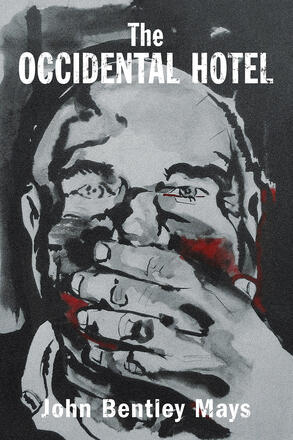
The Occidental Hotel
La description
A brooding fugitive hides out in a crumbling hotel that was once filled with celebrities enjoying the successes of postwar America, reflecting on the ruins of the South and on the life of a German performance artist called Jupp. At once echoing the moody worlds of W. G. Sebald and incorporating outrageous elements of pulp fiction, this novel of dark romanticism is not for optimists seeking redemption, but for those willing to take a look into a searing heart of darkness.
Reviews
The Occidental Hotel is a shockingly good book . . . And although it touches on many ideas and things, and is deeply pleasurable to read because of the masterful quality of Mays’s gifted language, it is finally and fundamentally a critique and satire of Western white supremacy and the attending wickedness and lunacy of that historical and current force.
- Border Crossings Magazine
On Power in the Blood:
Amazon. com Review
Ostensibly a family memoir, John Bentley Mays's Power in the Blood is a lyrical remembrance of his ancestors in the American South. He traces his lineage back to the arrival of a forebear in 1609 and then provides an illuminating view of how historical events were experienced by a large extended family. Mays's chronicle of his ancestors' lives during the colonial period, through the great upheavals of the Civil War, and into the 20th century is a beautifully written and highly informative narrative.From Library Journal
A Canadian unearths his Southern roots in what the publisher hopes is another Midnight in the Garden of Good and Evil.From Kirkus Reviews
A soul-searching memoir makes poetic hay of the saw that you can take the boy out of the South, but you can't take the South out of the boy. Mays's picturesque childhood on a Louisiana cotton plantation ended abruptly with his parents' deaths. He withdrew into a fantasy of ultra-Southernness and, after a mental br
Mays’s passion for art electrifies fascinating sketches of Beuys.
- Quill and Quire
What Mays does well in the novel is to write impeccable prose and create suspense. There is a lot of “where is he going with this” throughout the book or perhaps better put “is he really going in that direction. ” To a certain extent, he does stir up some empathy for his confused anti-hero narrator. Capturing the Zeitgeist of the experimental artists of the 1970s and 80s is another notable feature of Mays’ writing. The author was, after all, Canada’s leading art critic.
- Ottawa Review of Books